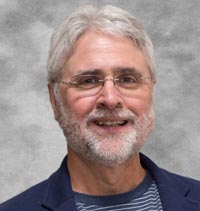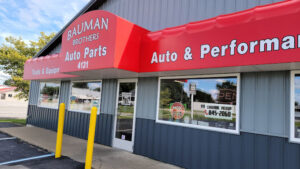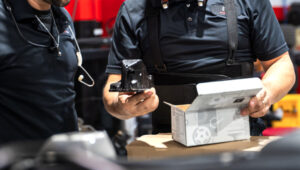Editor’s note: The following is an edited and abbreviated version of Remarkable Result Radio’s Carm Capriotto’s keynote at the 2024 MACS Training Event & Trade Show last month. You can download it in its entirety here.
We need to make a significant shift our industry’s terminology, for what our clients know about our work and for the professionals who do the repairs
As an industry, we’ve been playing with job role titles for years. Mechanic, Tech, Technician, A, B, or C Tech. To every person in the industry, they all mean something different.
The word “tech” has taken hold in the last few years, which is a short way of saying mechanic or diagnostician. What does that mean to the customer, or how definitive is it for the industry? Tech can mean so many different things when it comes to hiring or responsibilities within the organization.

Have you ever stated that you are looking for a B tech? What does that mean to you? It may mean something different to a shop owner in the next town and something different to a candidate looking for an opportunity. What if you said, “I’m looking for a Mechanical Specialist.” You write out the qualifications and then determine if your candidate fulfills your culture and the skill level you seek.
It has been years to overcome the moniker “installer,” heaped upon the professional service industry from our suppliers. Many still don’t understand that we don’t want to be called installers, yet we go to conferences and hear “installer” and even “dealer” used — words that have no relevance to our profession.
We need to make a change in not only the industry’s internal language and what our clients know about our work, but also for the professionals who do the repairs — we are “Auto Repair Specialists.” It’s an important paradigm shift in terminology that will affect our professionalism and how we approach training, staffing, and growing our teams.
There are no universal titles used to describe what we do. I love the term “Service Specialist” instead of “General Service.” Not that the correct name makes the job, but pride in a career can come from the role (title) and responsibilities assigned. Our younger generations appreciate titles and business cards.
Since the dawn of repair shops, the public has known us as mechanics, but we also know what it takes to learn the ever-changing job we face daily. We repair high technology machines. We need training, reading, studying, and the fundamental knowledge of the tools we use to remain relevant.
Can we all agree that vehicles today are nothing but a technology marvel? And what does it take to troubleshoot and fix them? Does it require a very talented and intelligent person? It most certainly does!
Imagine your client calls and says the check engine light is on. If you have a top diagnostician (sometimes called an A tech) on staff, you are confident you can help the client, so you book a couple of hours and set the appointment or reservation. This mechanic, A tech, or diagnostician, or whatever you choose to call them, will get the job of troubleshooting to figure out the problem. They jump into the technology labyrinth and use tools, resources, experience, and training. They may call friends or use subscriptions to network a potential solution or repair methodology.
On the other hand, you might also get a call for a brake job. So you book the appointment and give the job to your top mechanic, who can do a brake job expeditiously. This person often clocks many hours and is mechanically gifted with their hands.
We call our “Super Diag” person an A Tech. Is a “B” a mechanic? No! What makes an A tech? Who sets the standards? Is it the number of ASE certifications and hours of training? Is it the size of their toolbox? Who tests their competency?
We should toss all these job labels that are confusing to the public and even to the industry to determine or evaluate our roles and skill levels. We use our internal jargon — Diag, A-Tech, Mechanic — to describe roles to clients they might not care about or understand.
“Technology Specialist.” Does that not sum up what diag is today? Someone deep into ever-changing technology but who we deem a specialist because of the tools, equipment, knowledge, and commitment to training that they have.
Yes, we all have different levels of our “Technology Specialists.” You don’t get to be an “A” unless you were a “B”; previously, you were a “C” and, before that, maybe a General Service person. This is situational, with minimal status or stature. Shouldn’t owners and “Specialists” determine their expertise and training level, competency, or need?
More than ever before, we are “Automotive Service Specialists.” When creating ads for recruiting new talent, wouldn’t you agree that these language changes will find a different candidate when you are hiring for a Mechanical Specialist or a Technology Specialist? You know it will. Start now.
I want to know about your implementation experience at your shop. Please email me at carm@remarkableresults.biz
Carm Capriotto is a connector and influencer of automotive service aftermarket professionals. The voices, ideas, and insights that continue to shape the future of the automotive aftermarket reside on the industry’s premier podcast, Remarkable Results Radio. As an award-winning aftermarket podcaster, Carm has spotlighted many successful service professional shop owners. Remarkable Results Radio is a podcast that can be heard on the Aftermarket Radio Network and includes hosts who advance the automotive service aftermarket.








Comments are closed.